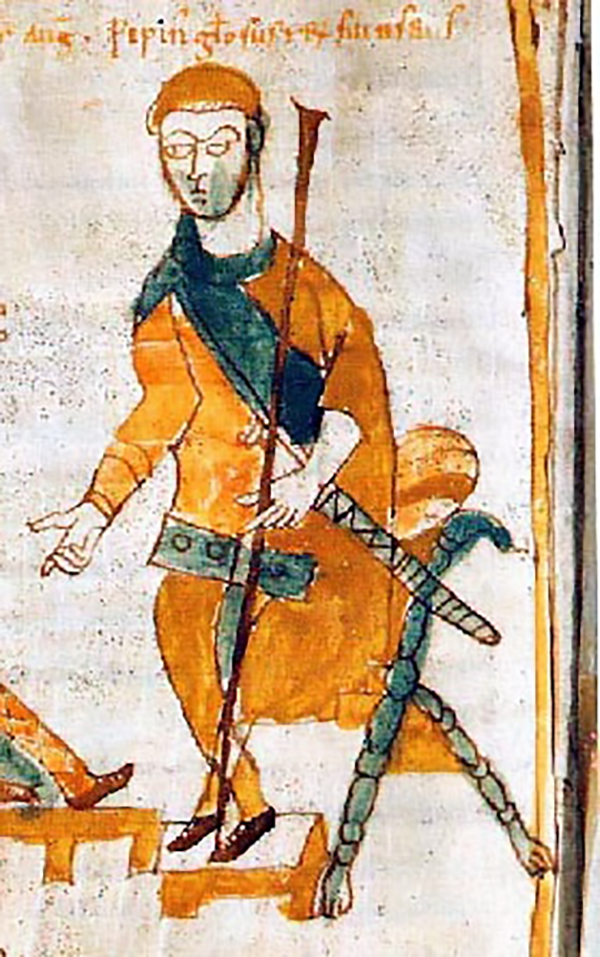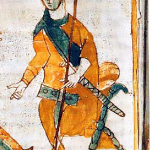Pepin or Pippin (or Pepin Carloman, Pepinno, April 773 – 8 July 810), born Carloman, was the son of Charlemagne and King of the Lombards (781–810) under the authority of his father.
Pepin was the second son of Charlemagne by his then-wife Hildegard.[1] He was born Carloman, but was rechristened with the royal name Pepin (also the name of his older half-brother Pepin the Hunchback, and his grandfather Pepin the Short) when he was a young child.
He was made “king of Italy” after his father’s conquest of the Lombards, in 781, and crowned by Pope Hadrian I with the Iron Crown of Lombardy.
He was active as ruler of Lombardy and worked to expand the Frankish empire. In 791, he marched a Lombard army into the Drava valley and ravaged Pannonia, while his father marched along the Danube into Avar territory. Charlemagne left the campaigning to deal with a Saxon revolt in 792. Pepin and Duke Eric of Friuli continued, however, to assault the Avars’ ring-shaped strongholds. The great Ring of the Avars, their capital fortress, was taken twice. The booty was sent to Charlemagne in Aachen and redistributed to all his followers and even to foreign rulers, including King Offa of Mercia. A celebratory poem, De Pippini regis Victoria Avarica, was composed after Pepin forced the Avar khagan to submit in 796.[3] This poem was composed at Verona, Pepin’s capital after 799 and the centre of Carolingian Renaissance literature in Italy. The Versus de Verona (c. 800), an urban encomium of the city, likewise praises king Pepin.
The “Codex Gothanus” History of the Lombards hails Pepin’s campaign against Benevento and his liberation of Corsica “from the oppression of the Moors.”
His activities included a long, but unsuccessful siege of Venice in 810. The siege lasted six months and Pepin’s army was ravaged by the diseases of the local swamps and was forced to withdraw. A few months later Pepin died, on 8 July 810.
He had one or more mistresses, whose names are not known for certain, and whose ancestry is not given from any reliable source although one has been conjectured to have been called Bertha, and she is believed to be the daughter of William of Gellone, count of Toulouse. Pepin had one son and five daughters (they were: Adelaide, married Lambert I of Nantes; Atala; Gundrada; Bertha; and Tetrada), all of whom but the eldest were born between 800 and Pepin’s death. All except Adelaide and Tetrada died before their grandfather’s death in 814. Tetrada married Adelaide’s stepson, Lambert II of Nantes. Pepin’s son was Bernard. Pepin was expected to inherit a third of his father’s empire, but he predeceased him. The Lombard crown passed on to his illegitimate son Bernard, but the empire went to Pepin’s younger brother, Louis the Pious.


